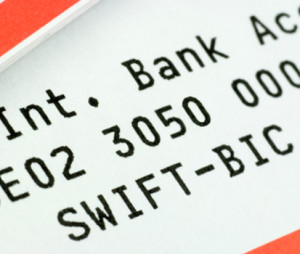Voluntary Compliance with US Tax Laws | International Tax Attorney Austin
The IRS has repeatedly stated that the US tax system is a voluntary compliance system. Yet, what does “voluntary compliance” mean in this context? Does it mean that US taxpayers only need to comply with US tax laws whenever they wish to do it? Does it mean that any US taxpayer has a right to refuse to comply with US tax laws or file his tax returns whenever he feels like doing it?
A lot of people tried to take this position and failed. The IRS has always won on the issue that US taxpayers have an obligation to comply with US tax laws, whether they want to do it or not.
Then, what is so “voluntary” about our tax system? Let’s explore this question in more detail.
Voluntary Compliance with US Tax Laws is Obligatory
Let us start with the affirmative statement that the word “voluntary” does not refer to the actual obligation of US taxpayers to comply with US tax laws. In other words, the compliance with US tax laws is compulsory and any noncompliance with US tax laws is punishable to the extent permitted by the law. Intentional noncompliance may even result in incarceration of a noncompliant taxpayer.
The IRS Inability to Engage in Full Enforced Tax Compliance
Since the word “voluntary” does not apply to the actual obligation to comply with US tax laws, we must look at the assessment of US tax liability to understand what voluntary compliance means. In particular, our focus should be on what is known as “enforced tax compliance” – i.e. direct assessment of tax liability and the audit of tax returns.
Here, we encounter an obvious yet interesting fact: the IRS does not have the resources to audit every one of the hundreds of millions of US taxpayers (resident and non-resident, individual and business), especially on an annual basis. Similarly, the IRS also lacks the ability to audit every single tax return every year; in fact, it only audits about 3% of all tax returns per year.
This means that the IRS does not have the capacity to sustain a system of enforced tax compliance and the vast majority of US taxpayers operate outside of this system.
The Definition of Voluntary Compliance
This lack of the IRS ability to engage in 100% enforced tax compliance leads to the inevitable conclusion that it has to rely on US taxpayers to timely file their own tax returns, assess their own tax liability and pay this tax liability to the IRS. It is precisely in this sense that US tax compliance system is “voluntary”.
In other words, voluntary compliance means that US taxpayers do their own self-assessment of their US tax liability (hopefully, in accordance with the IRS guidance) instead of the IRS doing it for each of them. Underlying this voluntary compliance, however, is the threat that the IRS can audit the tax returns and impose noncompliance penalties.
Contact Sherayzen Law Office for Professional Help with Your Voluntary Compliance Concerning US International Tax Laws
The IRS focus on the enforced tax compliance regarding the US international tax obligations of US taxpayers has caused an unprecedented rise in the voluntary compliance in this area of law. Noncompliant US taxpayers are at a historically-high risk of detection by the IRS and may face draconian IRS penalties, including jail time.
This means that, if you have foreign assets and foreign income, you need the professional help of Sherayzen Law Office to bring your tax affairs into full compliance with US tax laws. Our firm is highly experienced in the area of US international tax compliance with hundreds of successful cases closed and millions of dollars saved in US taxes and potential penalties! We can help you!
Contact Us Today to Schedule Your Confidential Consultation!



